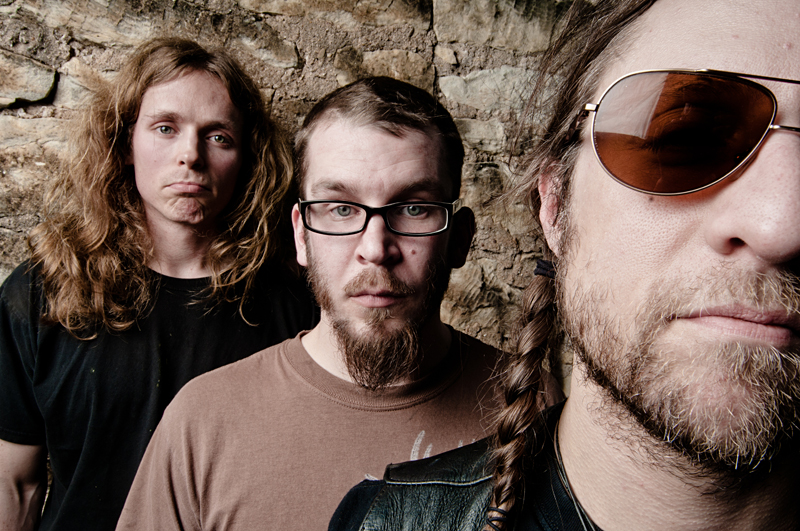A critical element in metal’s naturally self-sustaining ecosystem is the way its numerous subgenres go fallow and flourish from decade to decade, assuring future fertility. Thrash, grindcore, black, and death metal slide subtly in and out of vogue, nurtured during less fruitful times by loyal fan bases and artists working toward adding new dimensions to the existing canon. In the late ’90s, it was doom rock that was being quietly (well, not thatquietly) cultivated underground, defining itself with snail-friendly tempos and deeply down-tuned guitars. After putting down strong roots within the subterranean metal community, that genre is in full bloom now, with acts like Kylesa, Weedeater, and High on Fire touring almost continuously and the reunion of pioneers Sleep or the inception of supergroups like Shrinebuilder inspiring cross-country pilgrimages by committed fans. Few bands are more illustrative of the genre’s renaissance and its intricate appeal than YOB.
When they originally formed in 1996, YOB’s following was small, devoted, but very much off-the-grid. Four albums and 10 years later they broke up, and frontman Mike Scheidt busied himself with a new project, Middian. After a protracted legal battle with another band over the use of their moniker, Middian dissolved, and YOB reformed and released The Great Cessation in 2009 to a storm of critical acclaim and public accolades from prominent artists such as Soundgarden and Tool.
When I reach Scheidt via phone at his Eugene, Ore., home, he is punch-drunk with endorphins from a five-hour tattoo session administered by his girlfriend, Stevie Floyd of Dark Castle, the opening act on YOB’s upcoming national tour. Two years after their reconstitution, he remains humbled and bemused by YOB’s latent popularity. “I don’t think we realized how much the band had grown in our absence. When we were getting ready to record [The Great Cessation], we started getting barraged with attention, which kind of blew us all away,” he says with a laugh.
Much of what sets YOB apart from their doom-saying peers is an acute attention to both flow and nuance, something that Brothers of the Sonic Cloth leader Tad Doyle appreciates immensely. “What I really like about the way Mike writes songs—and the way he plays—is his use of space within the music,” says Doyle. “It flows from place to place almost like a river. The first time I heard YOB, I thought, ‘This is the kind of music I want to write.’ It really hit me hard. It had been a long time since a band hit me like that.”
Indeed, most YOB songs clock in above the 10-minute mark, gaining propulsive power via Scheidt’s incremental approach to composition. “I’ve never set out to write long songs,” he asserts. “It’s probably the pace, because they are slow songs and it takes longer to get there. I just write in movements and that’s always how I’ve heard music. What ultimately makes things happen for me in songwriting is the vibe and the flow.”
However, unlike many doom acts that are all foreplay and no climax, Scheidt believes firmly in the value of song structure and resolution. “The riffs are extremely important, but that by itself is not a song. There are some bands I love that can just obey a riff for a long time, but I really have to feel like I’m going somewhere. How do things flow together and connect—how do they make sense? Where’s the tension and release? Where’s the interplay between drums and bass and vocals? How do we make it extreme, but that the listener knows it’s going somewhere where’s there’s gonna be a payoff?”
On August 16, the payoff will be delivered in the form of Atma, the band’s sixth record and second release on Profound Lore Records. Tour plans will take them across the country throughout this summer and eventually to Europe in the fall, where they tend to draw much larger crowds now thanks to their slow-burning success.
“This is so far beyond what I ever thought was possible. I had no idea doom would become big. It’s all continually a surprise to me,” Scheidt says with audible incredulity. “I just hope we give people a good reason to leave their house and come see us.”
“I’ve gone to Portland to see YOB many times,” says Doyle. “I don’t do that for anybody.”








